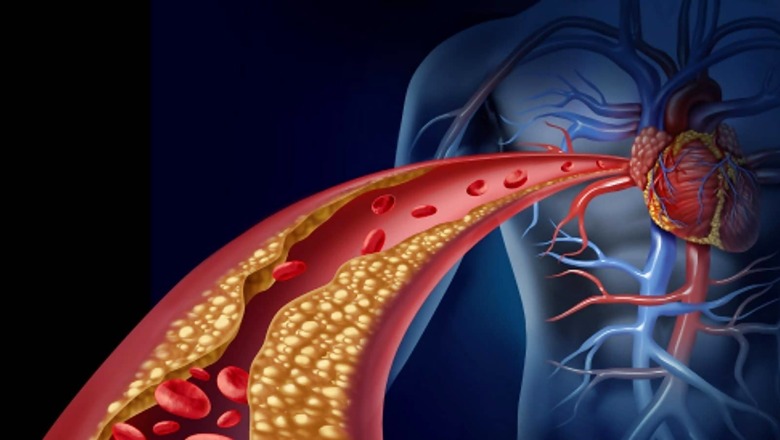
views
High levels of ‘LDL Cholesterol’ or ‘Bad Cholesterol’ and low levels of ‘HDL Cholesterol’ or ‘Good Cholesterol’ may be risk factors for cardiovascular disease. The latest study by REGARDS (Reasons for Geographic and Racial Differences in Stroke) found that while High-Density Lipoprotein (HDL) is singularly linked with an increased risk of heart disease in Americans, it was not only a trigger among African-American adults but also holds particularly true among Indians.
As reported by Indian Express, Dr Ambuj Roy, Professor in Cardiology, All India Institute of Medical Sciences says, “We have lower HDL levels as compared to the Western population and here the role of genetics, inadequate diet and low levels of physical activity have to be considered”.
Let us know the difference between Cholesterol and Lipoproteins:
Cholesterol is a fat-like substance that the liver produces. Cholesterol in the blood comes from either the food we eat or the liver. The human body uses cholesterol to produce vitamins and hormones and to build cells. Trans fats and saturated fats can increase the amount of cholesterol the liver produces, which may lead to cholesterol levels that negatively affect health.
Whereas, Lipoproteins transport Cholesterol around the body. There are mainly 2 types of lipoproteins: High-Density Lipoprotein (HDL), which people may refer to as “good” cholesterol and Low-Density Lipoprotein (LDL), which people may refer to as “bad” cholesterol.
What do HDL and LDL Cholesterol do to the human body?
Extra Low-Density Lipoprotein cholesterol can build up in the walls of the arteries, forming plaque which can narrow the arteries and increase the risk of cardiac arrest.
Whereas, HDL cholesterol transports LDL cholesterol away from the arteries and returns it to the liver, where the liver then removes it from the body.
These lifestyle changes will improve your Cholesterol levels:
- Engage yourself in regular physical activity, with at least 150–300 minutes of moderate exercise.
- Avoiding or quitting smoking.
- People having a family history of high cholesterol must attend cholesterol screenings regularly.
- Discussing with a healthcare professional, how to manage cholesterol.
Other ways to lower high blood cholesterol:
The Government Authority “Centres for Disease Control and Prevention” (CDC) recommends limiting foods high in saturated fats. These foods include red meat, butter and cheese. Instead adding nuts, avocados and olive oil may prove to be beneficial. CDC also recommends increasing the intake of high-fibre foods, such as oats, beans, lentils, fruits and vegetables.
Read all the Latest Lifestyle News here



















Comments
0 comment